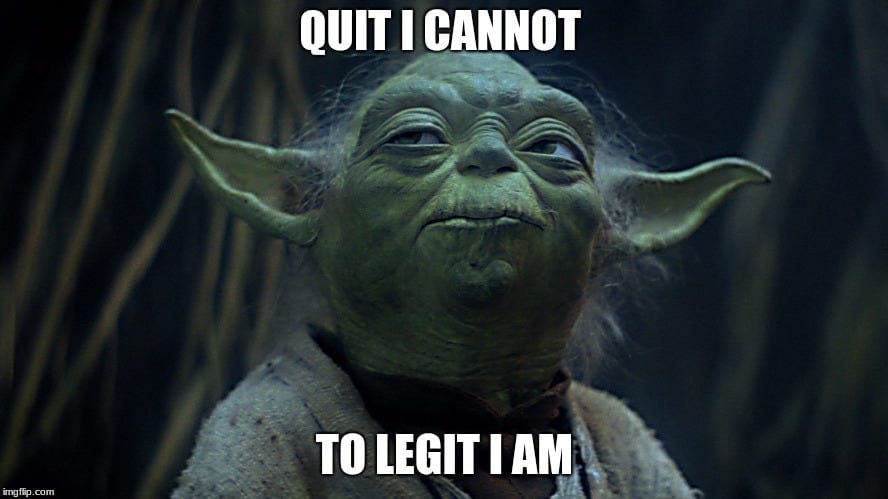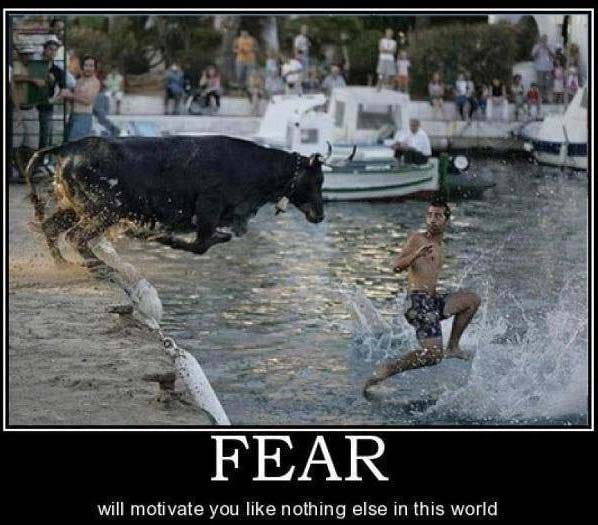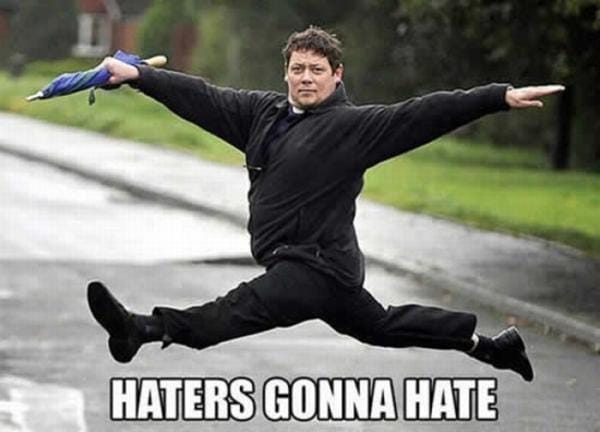Yoda Was Wrong

How Pivoteers Use Fear, Anger, and Hate to Avoid Suffering.
Originally published: October 28, 2021
There are concepts in here that work and some that don't. My year+ spent in alcohol recovery gave me some enlightenment into the nature of fear, anger, and suffering, and I need to sit with this for a little bit. It reads like some bullshit that a hustle pornstar would spew, and I'm owning that. But it's a fun revisit nonetheless, so I'm sharing it.
New beginnings are exciting, and Pivoteers do love a good beginning and also a good ending. That tingling feeling that something new is around the corner is hard to beat. So is that feeling that you're laying down the burdens of the last journey. You've put in your time and anticipate a much-needed and deserved rest.
Life has chapters, endings, and new beginnings. Some of these are voluntary, and many are not. Knowing how to navigate change and prepare for it differentiates the Pivoteer from the pedestrian, aimlessly wandering through life, jumping from job to job.

"Fear is the path to the dark side. Fear leads to anger. Anger leads to hate. Hate leads to suffering." ~ Yoda.
A few things to know about this quote before we begin: Yoda says these fateful words in The Phantom Menace. If your memory is as fuzzy as mine, I couldn't fault you for thinking they were from The Empire Strikes Back or Return of the Jedi. Until I started writing this, I could have sworn that he said those words to Luke Skywalker. Alas, Yoda says them to a very young Anakin Skywalker, as mentioned, in The Phantom Menace.
I'm explaining this because The Phantom Menace didn't produce anything good, so Yoda has a get-out-of-jail-free card on this one.
So, let's break this down, take the quote, and reframe it through the lens of the Pivoteer.

Fear leads to anger.
Does it? I've been scared out of my mind so many times in my life, and I'm having a hard time recalling a single instance where fear led to anger. Maybe if someone did something stupid and put me in jeopardy, there may have been some miffed-ness. But generally, fear leads to retreat or copious substance abuse. But, I kid.
There are all kinds of fears, and I want to talk about the fear of losing stability—that existential dread that you're not going to pay the bills or have enough food or, the worst one, not being able to pay the rent or mortgage.
What most people do when confronted with this fear is to make horrible decisions. They prioritize short-term safety for longer-term contentedness.
(Side note: I use contentedness instead of happiness because happiness is a BS self-help term. It's overused and almost unquantifiable since it differs from person to person. Contentedness has a bit of happiness thrown in, but it's more about being at ease, satisfied, and, well, content!)
When things are going bad, and people live in fear, they will take jobs or do work that they despise to fill short-term gaps but end up sticking with them for far too long—sometimes the rest of their lives.
Fear is a trigger that lets us know we're fundamentally under-prepared for catastrophic events. We're at risk and not in control of our lives. If you have this fear, it's time to prepare and start planning. That airplane isn't going to build itself.
Fear of losing your job, your income, your home, your clients, your family. These things should not lead to anger. They should lead to preparation.
Our new Pivoteer version starts with "Fear leads to preparation."

Anger leads to hate.
Anger comes in many forms. I've been angry countless times at my co-workers, management staff, business partners, and co-founders. If you're in the working world, you're probably going to be angry a LOT. For The Pivoteer, I want to focus on the anger with your life situation.
Yoda got this one somewhat correct, but we're going to turn it on its head and make anger work for us rather than against us.
If you can harness your anger, put it in a box where you can observe it; what will it tell you? It will tell you that things are out of your control and that you're either doing something wrong or not in an optimal situation. The easy road is to bitch about it until you're blue in the face and 6 feet in the dirt. But if you can LEARN from your anger, you can use that knowledge to inform your planning.
I posit that when anger is controlled and harnessed, it leads to enlightenment.
The knowledge that you're doing things the wrong way is valuable even if you don't currently know how to fix the problem. It gives you a candle in the cave to light your way to improving your situation. And that will help guide your planning. Knowing what not to do is as important as knowing what to do. Use the knowledge the anger gives you and make a "never again" list. You want to be clear that no matter how bad things get, these are the things you are NOT willing to do again.
And stick to it!
Once you close that door and have permission never to open it, you can use that energy to plan to do what you want.
Continuing on our new version is that "Anger leads to enlightenment."

Hate leads to suffering.
If you're in a situation that you genuinely hate, as the kids say, "You done fucked up."
It took me decades to realize that it was my fault if I was in a situation where hatred ruled me. A series of events brought me to where I was, and at any point in that series, I could have changed my fate, but I didn't.
I stuck with a job or project too long or agreed to work with people I knew deep down were unsavory or just plain evil. But on reflection, I knew it in my bones long before the hatred kicked in. Because the hate, while targeted at them, was really for me.
My desires made me do things I usually wouldn't do because I wanted something.
It could have been a new position, usually more money, but it always was a shortcut. Shortcuts are the longest distance between two points, by the way. I finally had an epiphany after one too many 'fuckings over' from an ex-business partner and decided to flip my entire approach to hate on its head.
The reaction to hate is similar to anger but with a twist. I could hate the people or the situation, or I could let it go, remove myself, fix whatever damage I'd caused to myself, and take ACTION.
Action has a fascinating effect: you don't have time to hate because you're just too busy getting out. You're looking at the future instead of the past. Action is liberating, and it's focusing. Without action, hate can genuinely lead to suffering.
And tattoo this backward on your ass so you can read it in the mirror, "Living well is the best revenge."
In closing, we can add one more tweak to the new saying. In its totality, it should now read.
"Fear leads to preparation, anger leads to enlightenment, hate leads to action, and inaction leads to suffering."
This mantra should help you identify when things are going wrong and help you plan for your pivot.